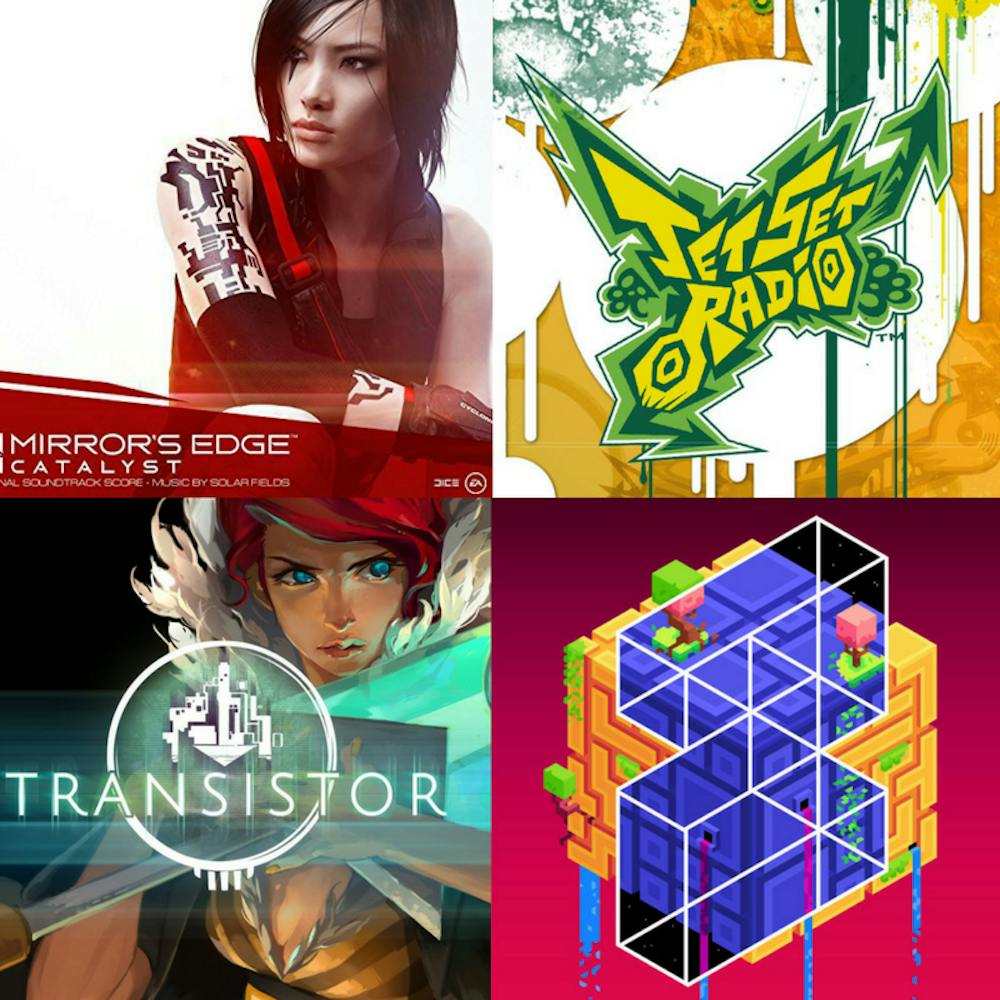The main issue with modern gaming culture resides within its connotation as a juvenile pastime for preteens who enjoy shooting each other online, ad infinitum, whipping vulgar language and racist slurs like a United States president-elect.
To see past this rather horrible first impression of gaming is to see the most immersive artform in existence. That’s not an overstatement. The audience is given the controls to fire-start monumental moments of visual art, music, writing, and filmmaking. A multimodal experience. If done correctly, gaming brings out the best in many forms of art and is, in turn, extraordinarily immersive.
Good game design implies good music. It’s what accounts for those footsteps in the grass or the soft-humming of a spaceship’s engine in neutral. A dynamic world demands an appropriate amount of aural animation to define it, and some musicians have formed some unparalleled works of sound in the past two decades.
Albeit it's not only musicians. Since independent gaming’s mainstream explosion circa 2010, the production quality of games has increased dramatically. We’re still at the tail end of an indie-gaming renaissance of sorts, with releases like Undertale, Stardew Valley, Ori and the Blind Forest delivering stunning amounts of polish and content.
Even mainstream gaming, plagued it may be, has still generated quality music in its recent history. We here in the Music section are biased, but it seems that the OST’s to triple-A titles are often the best parts about them. For example, despite how poorly received the Halo series has become to be, it’s necessary to acknowledge Marty O’Connel’s immaculate orchestral score as integral to the game’s identity.
This is only a handful of suggestions, but it’s a good place for an aesthete to dig deeper into the aural world of the electronic arts.
The first of which is Jet Set Radio Future, a cell-shaded future-punk field day in which a group of rebel graffiti artists coat Neo-Tokyo in some fresh new paint. The player gets to control any which member of the squad, known as the GGs, and skate through a cartoon cityscape to recruit fellow anarchists, perform absurd aerial tricks, and ram into police with jet-powered rollerblades.
Naturally, it's difficult to imagine how any of this would sound and that’s where Hideki Naganuma comes in. SEGA straight up hired a breakbeat DJ to work on JSRF’s soundtrack and hit the nail on the head – so eloquently in fact that listening to the OST is difficult without hearing the game’s ambiance filling in the background. The rush a player gets by grinding through the streets with “Oldies” or “Teknopathic” blaring on the sidelines is exhilarating, and the game always feels cartoony and upbeat despite gameplay revolving around fumigating Japanese S.W.A.T. teams with spray paint.
In scratching, warping, and sampling cuts over a rich drum-step foundation, Naganuma masterfully utilizes the aesthetics of '90s hip-hop and rap. For instance, the track “Humming the Bassline” and it's infamous nature in making players loiter around the character select screen solely to vibe out.
And there’s a huge disparity between him and more contemporary video game composers. In contrast to Naganuma, Darren Korb builds his worlds with a much more subtle and atmospheric perspective. In Transistor, the player assumes the role of Red: a lounge singer turned insurgent protecting herself and her city, Cloudbank, from a digital hivemind called the Process. She uses the Transistor, a weapon that steals the souls (data) of citizens to destroy the organization behind it all and reclaim her stolen voice. The combat is stylized, polished with a distinct game feel that really brings the best out of the indie genre. Korb obliterates expectations to breathe life into this technologically distraught universe.
Korb, mostly through reversed guitar clips and pitch-shifted drum loops, conveys a glitchy ambiance that's always trying to piece itself together. Transistor’s world is pretty much set on an SSD (hence the name “Cloudbank”) that’s being slowly being data-mined into annihilation. To reflect this, he layers drum hits with a feverish white noise that somehow makes the final product more beautiful and cohesive, rather than grating and static. “Old Friends,” “Water Wall,” and “Coasting” exemplify the glitchy-pseudo-acoustic-downtempo haze, and tracks like “Forecast” and “We All Become” are designed for when the battles become lopsided against your favor.
Save points are accompanied by the track "Sandbox," a minimalist-electronica groove that incorporates slide guitar and the most jubilating ukelele riff on this side of Hawaii. Other songs such as "In Circles" use odd time signatures and more progressive elements that build into loud, reverberated climaxes. Both styles represent the games dissonance - how at one moment the scenery is bouncy and colorful, and the next: everything is trying to kill you. The best part of Transistor is that when you hold down shift, Red, having lost her voice, begins to hums along to the music in-game. It’s such a small detail, yet adds so much flavor to both the soundtrack and game feel.
Get content from The Daily Lobo delivered to your inbox
Lastly, orchestral music in video games deserves some love too. Everyone is generally familiar, in some way or another, with Marty O’Donnell's score for the first three Halo games. His compositions very much redefined how to write music for the electronic arts. Nothing says galactic alien war like an urgent 30-piece orchestra and distorted electric guitar hurdling through the sonic landscape at 150 beats per minute. The Steve Vai remix of Halo 2’s theme, though a track I’m not particularly fond of, boosted the players’ heart rate all the same. It was also featured on Guitar Hero’s setlist, which is a game that kind of deserves its own section here altogether.
Since O'Donnell's compositions, an amalgamation of game developers have enhanced their work in the same manner. Specifically, over-the-top triple-A Japanese RPGs. Kingdom Hearts used a heavy-hearted orchestral score to congregate a variety of the series' emotional storylines, as love and relationships are almost always the main driving force. The official orchestra was actually touring last year and, though attending a show is as difficult as understanding the games' story, it’s still possible to acquire the physical soundtrack. Furthermore, a YouTube musician known as Sam Yung composed a KHIII concept piece that may go down as one of the most gorgeous renditions of the "Dearly Beloved" theme in history, an interesting re-imagining considering he isn’t affiliated with Square Enix or Disney at all.
The runner-ups are the Shadow of the Colossus (2006) and Nier: Automata (2017) soundtracks, both of which are as good, if not better, than Kingdom Hearts' weighted compositions. With regards to soundtracks in general, there are a plethora of honorable mentions to throw around: Mirror’s Edge, Animal Crossing, Hotline Miami, Fez (really anything Disasterpeace does), Dota 2 (specifically, Deadmau5’s music pack), The Metronomicon, Bastion, ABZU, Journey, hell, even Wii menu music – there are too many prime examples to consider.
Because video game soundtracks now inhabit a weird little world between mainstream music and multi-million dollar film scores. Players are getting the best of both worlds in that these tracks run a myriad of influences to suit just about every part of life. They’re incredibly immersive, tailored for every waking moment in the plot: walking, running, fighting, sleeping, flying, jumping, swimming, exploding, dying, being – the artist needs to be aware of what any of these particular verbs, so to speak, sound like at any given time. That’s what separates this strange little category from everything else.
Walking to ENGL 270 feels like an espionage mission, and laying in the grass by the duck pond suddenly has a quest attached to it. Video games soundtracks will always evoke the most emotions because the medium they reflect is inhabitable by the listener. For a niche subgenre that’s yet to make waves in the world, it ends up being a pretty righteous secret.
Audrin Baghaie is the music editor for the Daily Lobo. He can be reached at music@dailylobo.com






